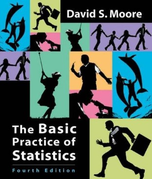Explaining medical research. Observational studies had suggested thatvitamin E reduces
Chapter 0, Problem 9.47(choose chapter or problem)
Explaining medical research. Observational studies had suggested thatvitamin E reduces the risk of heart disease. Careful experiments, however, showedthat vitamin E has no effect, at least for women. According to a commentary inthe Journal of the American Medical Association:Thus, vitamin E enters the category of therapies that were promising inepidemiologic and observational studies but failed to deliver in adequatelypowered randomized controlled trials. As in other studies, the healthy userbias must be considered, ie, the healthy lifestyle behaviors that characterizeindividuals who care enough about their health to take various supplementsare actually responsible for the better health, but this is minimized with therigorous trial design.16A friend who knows no statistics asks you to explain this.(a) What is the difference between observational studies and experiments?(b) What is a randomized controlled trial? (Well discuss adequately poweredin Chapter 16.)(c) How does healthy user bias explain how people who take vitamin Esupplements have better health in observational studies but not in controlledexperiments?
Unfortunately, we don't have that question answered yet. But you can get it answered in just 5 hours by Logging in or Becoming a subscriber.
Becoming a subscriber
Or look for another answer
